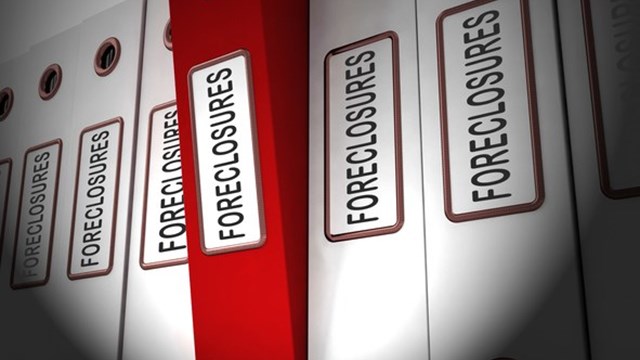As the economy sputters along and unemployment rates remain steady at more than nine percent, there isn’t call for celebration. Whereas the real estate market was also lumped in with these aforementioned Great Recession causalities, in certain regions, sales of homes and condominiums are showing positive signs—giving hope to an industry that has been treading water for over three years.
“We are seeing a reduction in inventory and a higher demand from buyers,” says Matt Farrell, managing partner for Chicago-based Urban Real Estate. “There has been a bottoming out in the Chicago market and we are not seeing the same type of worries. There are still short sales and foreclosures but they are not necessarily driving down the prices as much.”
In September, the National Association of Realtors (NAR) released its monthly report and the news was somewhat encouraging. From August 2010 to August 2011, sales of existing single-family, townhomes, condominiums and co-ops spiked by18.6 percent. The report also found that sales on a monthly basis increased by 7.7 percent with unsold inventory dropping by three percent.
While these are aggregated national statistics show promise, these real estate tea leaves should be read with caution. “Some of the improvement in August may result from sales that were delayed in preceding months, but favorable affordability conditions and rising rents are underlying motivations,” noted Lawrence Yun, NAR’s chief economist. “Investors were more active in absorbing foreclosed properties. In additional to bargain hunting, some investors are in the market to hedge against higher inflation.”
Rosie O’Donnell’s recent purchase of a home in Chicago’s prestigious Lakeview area for $2.5 million isn’t an indication that the market is showing signs of high-end growth as not every buyer in Chicagoland is starting a television show this fall on Oprah Winfrey’s OWN network. Conversely, former Chicago Bulls star Charles Oakley placed his 10th floor condominium unit in Chicago’s prestigious Museum Park at 233 East 13th Street for $979,900. Barkley paid $1,087,500 for the home the year it was built in 2005. For a buyer, this is tantamount to sending a white flag up the pole.
“The Chicago market has turned into two distinct markets, the high end and the low end, which is typically foreclosures and short sales. The high end is the luxury market up to $15 million. This area isn't as impacted,” says Sheldon Salnick of Rubloff Residential Properties in Chicago. “In the last year, even the last month, the market has gotten worse. This is due to the stock market and creditors as it is difficult to get loans.”
Market Indicators
The impacts of the economy and the volatile stock market are impacting submarket across the nation. There are states, however, that are doing better such as Texas, Oklahoma, New York and Florida that has experienced gains between one and two percent. For Chicago, in many respects, there is nowhere for the real estate market to go but up.
“There are deals to be had. The whole market is really a deal right now,” says Farrell, a member of the Chicago Association of Realtors (CAR). “There is a lot of opportunity right now from that perspective it makes it interesting for buyers and investors.”
A snapshot of type two homes in the Chicago metro area provides for a better understanding of where the market stands in relation to past years. According to the Chicago Association of Realtors, the closing number as of September 18 was 138 units sold at a median price of $225,000. The year prior at the same time period, 165 units sold at $220,000, and in 2009, 258 units sold at a median price of $275,347.
The increase of short sales can in some respects cloud the view of the market, noted Scott Berg, owner of Berg Properties located in Oak Park. “Short sales have their own issues as well. There is a huge uncertainty level with a short sale because the bank does not own the property but instead is being asked to forgive part of the load so that the owner can sell without going through the foreclosure process,” he continues. “Short sales are notorious for taking as long as six months to close. Many buyers simply drop out along the way. So even though the market is tough and distressed properties make it tougher there are opportunities to successfully compete for buyer’s attention.”
For real estate agents, brokers and analysts, finding the bottom can be viewed as subjective as there are variables to consider. “If a buyer wants a loan, the need a FICA score of over 720 and be able to put down twenty to thirty percent in cash to be considered,” says Salnick. “And it is very difficult to refinance an existing loan so it is very hard for people to move up.”
With over twenty years experience in the Chicagoland area selling real estate, Salnick says that buyers are more concerned with schools than they have ever been before which make the want of refinancing that much greater. “The people who can afford to and are buying high-end properties are getting deals,” Salnick continues. For those properties starting at $1 million dollars or more, he says reductions of 10 to 20 percent from the list price are quite common.
While the market sputters to maintain motion, there are signals that times are changing for the better. “Opposed to last year, my phone is ringing more often,” says Farrell. “This year has been our most productive year yet and we are entering our sixth year.” He adds that condominiums selling between $150,000 and $350,00 and units selling for upwards of one million are doing better on the market than those priced in-between. “Those owners have been hit hard,” he says.
As a result of more business coming through the door, Farrell notes that the market indicators are much easier to understand. “We now have a better understanding about what is going on with the buyer’s side of the market. Fewer and fewer clients are stuck on the distressed properties. Last year it was all about short sales and foreclosures but a certain education has happened, where people realized that just because it is a short sale, doesn’t make it a good deal.”
With regard to who is buying, Farrell says there are variations. “Our market is different than say South Florida where you might get more international investors. But we are seeing foreigners that are seemingly trying to move monies out of their economies and they see our economy as a decent move in terms of exchange rates,” says Farrell.
“I mostly deal with high end luxury sales. We are starting to see more second home activity, which took a hit as everyone really put the brakes on—because no one knew where the economy was going. Now they are seeing that the market is ripe with opportunity.”
Recovery or Not?
Historically, real estate recovery goes in tandem with job recovery. With Democrats and Republicans hemming and hawing on the best way to rebuild our economy, only small steps are occurring in Washington, D.C. Likely, this slow pace will continue as the presidential election ramps up. In addition, the president raised the debt ceiling in August (the seventy-fourth time since 1962) and now in an attempt to find an additional $1.5 trillion in debt savings over a ten-year period, a bi-partisan “super committee” has been selected and remains busy working on this goal on Capitol Hill. What does this mean for depressed real estate markets like Chicago? Only time can answer this question. The predictions are not all sunny.
“I don’t foresee a bull market particularly with what has been going on in the stock markets; we are seeing huge drops each day. We will not see a rebound in this market for at least three or four years, maybe even five years,” says Salnick. “Listen, everyone is nervous. Properties are coming down in value, the value of the dollar is coming down, and everyone is concerned with where the world economy is going,” he says. “And with the government, with programs like Fannie Mae and Freddie Mac, there are too many regulations especially for investors,” he adds.
In Illinois, the August unemployment rate was 10 percent, which marked a slight increase from the August 2010 rate of 9.9 percent. However, in July the state unemployment rate was 9.5 percent. “In the state of Illinois, there are some major problems and if they can’t figure out how to improve the job situation, it won’t help the real estate market. But before we start incentivizing the market with new construction (or the like), we have to let the market work itself out first because we have an over-supplied market presently.”
Looking forward, Farrell says that in the next year or two, downtown Chicago pricing probably will not drop. “Depending on when you start the clock, there will be minimal appreciation. The fate of the market is tied to Washington and Wall Street, where the economy is headed, and how that impacts consumer confidence.”
W. B. King is a freelance writer and a frequent contributor to The Chicagoland Cooperator.







Leave a Comment